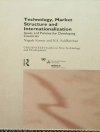Many Americans believe that foreign military intervention is central to protecting our domestic freedoms. But Christopher J. Coyne and Abigail R. Hall urge engaged citizens to think again. Overseas, our government takes actions in the name of defense that would not be permissible within national borders. Emboldened by the relative weakness of governance abroad, the U.S. government is able to experiment with a broader range of social controls. Under certain conditions, these policies, tactics, and technologies are then re-imported to America, changing the national landscape and increasing the extent to which we live in a police state.
Coyne and Hall examine this pattern—which they dub 'the boomerang effect’—considering a variety of rich cases that include the rise of state surveillance, the militarization of domestic law enforcement, the expanding use of drones, and torture in U.S. prisons. Synthesizing research and applying an economic lens, they develop a generalizable theory to predict and explain a startling trend. Tyranny Comes Home unveils a new aspect of the symbiotic relationship between foreign interventions and domestic politics. It gives us alarming insight into incidents like the shooting in Ferguson, Missouri and the Snowden case—which tell a common story about contemporary foreign policy and its impact on our civil liberties.
Spis treści
1. Mark Twain’s Ominous Warning
2. The Boomerang Effect: How Social Control Comes Home
3. A Perfect Storm: Why America Is Susceptible
4. Surveillance
5. The Militarization of Police
6. Drones
7. Torture
Conclusion: Reclaiming the Great Republic
O autorze
Christopher J. Coyne is Associate Professor of Economics at George Mason University and Associate Director of the F. A. Hayek Program for Advanced Study in Philosophy, Politics, and Economics at the Mercatus Center. He is the author of
Doing Bad by Doing Good: Why Humanitarian Action Fails (Stanford, 2013) and
After War: The Political Economy of Exporting Democracy (Stanford, 2008).
Abigail R. Hall is Assistant Professor of Economics at the University of Tampa.












